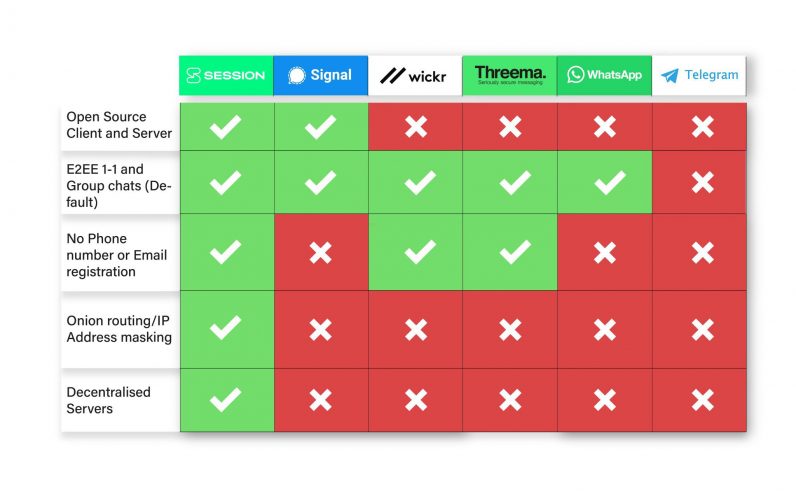But apart from these two, some niche secure messengers have also come to the fore. One of them is an open-source app called Session, which doesn’t require any email ID or phone number to sign up. Instead, it creates a unique session ID that you can link across devices to keep your messages in sync. To restore your messages on another device, you have to use the combination of this session ID and a unique recovery phrase. While Telegram allows you to hide your phone number, and Signal is working on a similar system, Session’s mechanism for singing up is truly anonymous. This means that you don’t have to give up your identity in any form. All your messages are secure behind end-to-end encryption — so no one can see them. To keep your metadata hidden, the chat app uses a Tor-browser-like system — where messages hop between different server nodes — to mask your original IP address. Session claims that it also has a decentralized server system, so there’s no single point of failure, and a group chat doesn’t stop because one of the servers is down. There are some downsides to having a secure system like Session’s — not having functionalities such as voice, video, or group calls. That’s the cost of anonymity. While Signal has been long advertised as one of the most secure messengers around, a recent announcement from founder Moxie Marlinspike that the app is integrating support for the MobileCoin cryptocurrency has raised some eyebrows amongst some users. So Session has emerged as one of the alternatives for people who might try out another messenger. You can learn more about Session and download one of its clients here.
